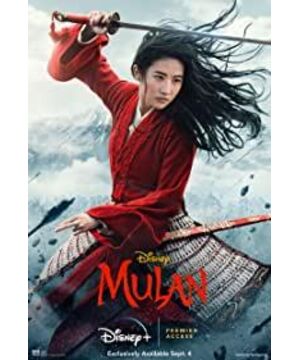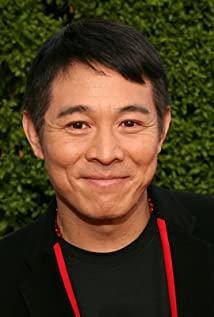I recommend everyone to watch the Chinese-dubbed version of "Mulan", the sense of disobedience will be much lessened. Watching this film with the presupposition of an alternate history (that is, without entangled in the historical authenticity of the Dao and the storyline), my feelings are as follows:
The theme can be said to be inherited from "Frozen" - should women hide the power that is considered not to belong to them and "abide by their duties", or embrace themselves and exert their greatest ability and value? "Mulan" actually talks about this truth from beginning to end. Other characters and storylines are all props. Among them, the emperor's tools and characters are particularly obvious (in other words, it is impossible to tell that it is Jet Li), and Gong Li The witch played is a mirror image of Hua Mulan, as if the director was worried that the audience could not see the values and arranged it forcibly. Women's values in Disney's princess films are evolving with the times, and there have been many analyses before. "Mulan" is just the latest case.
I think the discomfort for Chinese audiences comes mainly from the film's reaffirmation of America's "cultural hegemony", that is, the deployment of cultures around the world to serve their own narratives and propositions. A passage from Eric Jones's "Cultural Convergence" explains it clearly:
“America’s most distinctive feature is the hybridism of its cultures. Each culture borrows from the other, but American culture is an open, multicultural type. People from many other countries in the world have chosen to settle in the United States, and they work together to produce American cultural products. As a result, American cultural producers have adopted a wide range of themes from around the world, while using the most dynamic means of packaging and retailing cultural products in the world. American business society has never been stagnant because it does not Stop incorporating the richest elements into new books, new works of art, and new blockbuster Hollywood movies. Most countries have scholars, commentators, and speakers who tend to think that their societies are unique and therefore Their society should not and cannot be understood in terms of shared characteristics. But only in the United States, which is a world culture, does it not become a sophistry."
It is easy to draw the conclusion of "Orientalism". The so-called Orientalism means that the West uses the East, the cultural other, to reflect on itself and confirm its own subjectivity. For a long time, Orientalism was a means of affirming the superiority of Western culture, but in the case of "Mulan", it is very interesting that the focus of Orientalism is not on saying "the other is not good", but on "the other is not good". "Show your own values on the stage set up. It's also a kind of Orientalism, albeit with good intentions (I remember the director said in an interview that "this is not only our Mulan, but now it's your (Chinese) Mulan" or something).
Regarding this status quo, we may only be able to "hold back" for a period of time, unless we can also have such a strong "storytelling" ability as the United States. I felt the same way when I reported on the Venice Art Biennale last year . The “peripheral countries” have to tell good stories, or they can trace their own culture, history, and traditions, and find their relationship in the gap between the overarching (Western) modernity narrative. The connection between the local life experience and the social status quo of the country, and further reveal the insufficiency of the modernity narrative or the universal experience; or choose to look beyond the scope of the nation-state to examine global issues. If you just play your own things in your own circle and blindly reject foreign cultures, it will be difficult for your own culture to go out.
View more about Mulan reviews











